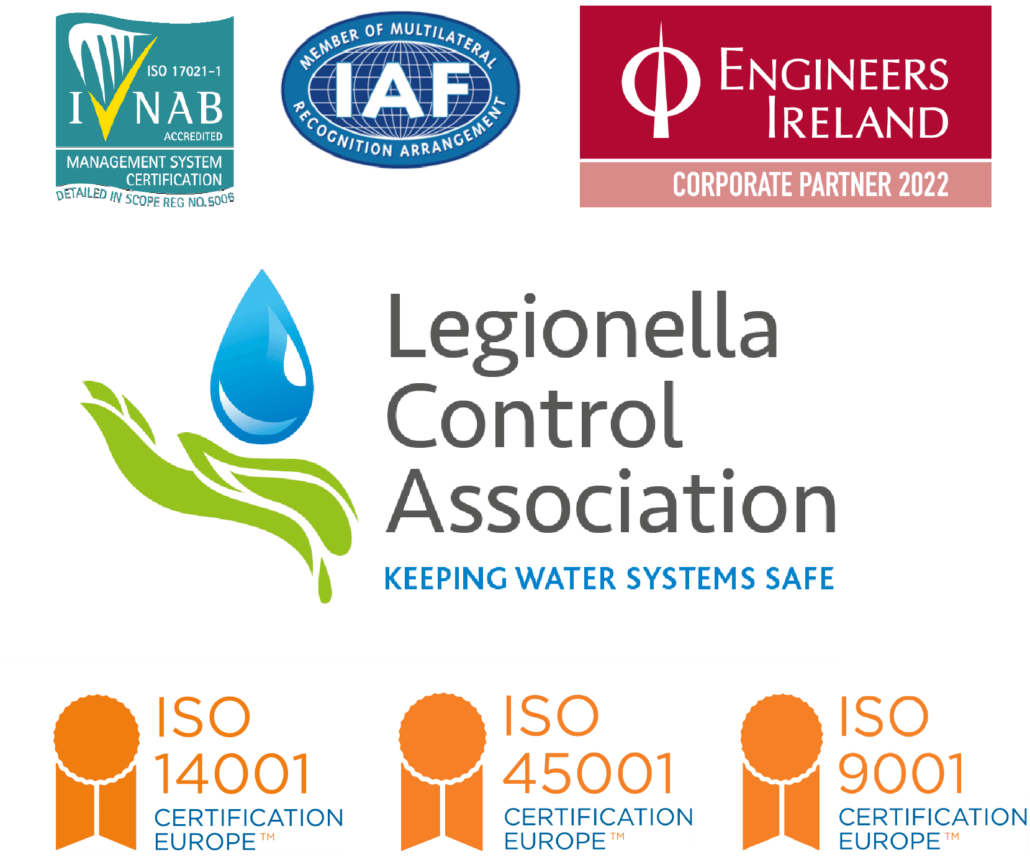Legionella Risk Assessment
A Legionella Risk Assessment must be done every year, this is legally binding under the Health & Safety Act 2005. For Legionella Risk Assessments, AquaChem use an Independent Risk Assessor complying with, and conforming to all National Guidelines. An Independent Risk Assessor ensures there is no bias and a logbook is prepared for each site.
What is Legionella?
Legionella pneumophila is a thin, aerobic, pleomorphic, flagellated, non-spore-forming, gram negative bacterium of the genus Legionella. L. pneumophila is the primary human pathogenic bacterium in this group and causes Legionnaires’ disease, also known as legionellosis.
In nature, L. pneumophila infects freshwater and soil and is generally harmless in the natural world. However, when humans collect and store water in an artificial environment, such as a water storage tank, Legionella bacteria can grow. If a person inhales this aerobic bacterium it can cause that person to contract Legionnaires’ disease.
What is Legionnaires’ Disease?
Legionnaires’ disease, also known as legionellosis, is a form of atypical pneumonia caused by any type of Legionella bacteria. Signs and symptoms include cough, shortness of breath, high fever, muscle pains, and headaches. It is a serious illness and is life threatening.
Individuals at Risk of Legionella:
- People over 40 years of age.
- Those with a history of excessive alcohol intake.
- Immunocompromised organ transplant patients, patients with a compromised or weak immune system, the elderly, children and those receiving systemic steroids. Patients with chronic underlying disease such as diabetes mellitus, congestive heart failure, chronic obstructive pulmonary disease and chronic liver failure are also high risk.
Where can Legionella Live?
- Water systems incorporating a cooling tower.
- Water systems incorporating an evaporative condenser.
- Hot and cold-water systems.
- Spa pools.
- Natural thermal springs and their distribution systems.
- Respiratory and other therapy equipment.
- Dental chair unit waterlines.
- Fountains/sprinklers.
- Water-cooled machine tools.
- Vehicle washes.
- Potting compost/soil in warmer climates.
National Guidelines for the control of Legionellosis in Ireland:
In Ireland, the principle legislative provisions that are of relevance to the prevention of legionellosis in the workplace include:
- The Safety, Health and Welfare at Work Act 2005 (S.I. No. 10 of 2005)
- The Safety, Health and Welfare at Work (General Application) Regulations 2007 (S.I. No. 299 of 2007)




